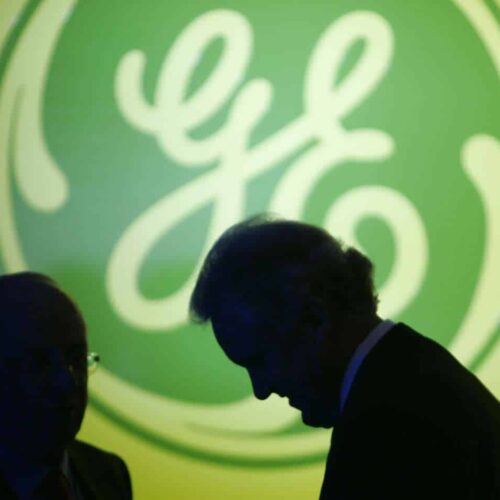Introduction
Federal authorities are investigating possible fraud at General Electric Co.’s former subprime mortgage arm amid increased public pressure to hold Wall Street accountable for its role in the financial crisis.
The FBI and the U.S. Justice Department are looking into potentially criminal business practices at Burbank, Calif.-based WMC Mortgage Corp. during the home-loan boom, according to four people with knowledge of the investigation. They declined to be identified because of the sensitivity of the investigation.
The government is asking whether WMC used falsified paperwork, overstated borrowers’ income and other tactics to push through questionable loans, two of the people said. They said the probe appears to be focusing on whether senior managers condoned improper practices that enabled fraudulent loans to be sold to investors.
“It’s mostly about: Did they knowingly sell mortgages into the secondary market that they knew were fraudulent?” said one person with direct knowledge of the investigation.
A spokesman for the FBI declined to comment, and the Justice Department did not return telephone calls.
Russell Wilkerson, a spokesman for GE, said the company “as a matter of practice” cooperates with law enforcement on inquiries but does not comment on specific investigations. However, he said any allegation that WMC sold large numbers of fraudulent loans to investors was false.
GE acquired WMC near the height of the mortgage boom in 2004, giving it a major presence in the growing subprime lending market. But by 2007 the California lender was hemorrhaging money and slicing into the conglomerate’s earnings.
The unit was shut down as the housing market buckled. Since then, investors have launched a string of civil lawsuits, and federal authorities began a criminal inquiry.
The FBI’s San Francisco office indicated that it has been looking into WMC’s business practices for nearly two years, according to one of the people who has knowledge of the investigation. The bureau has examined individual WMC loan files and has begun contacting former employees about how the lender handled the sale of mortgages to investors, this person said.
WMC recorded the second-highest number of foreclosures on higher-risk mortgages in America’s 10 hardest-hit real estate zones, according to the U.S. Treasury Department. The company was second only to now-defunct subprime lender New Century Financial Corp. of Irvine, Calif.
For instance, the Treasury report said WMC’s foreclosure rate topped 40 percent in hard-hit California areas such as Merced, Modesto and Stockton.
The FBI and Justice Department had little success in prosecuting mortgage executives after launching investigations in 2008. But there has been increasing pressure, from groups including labor unions and Occupy Wall Street, to find culprits for the devastating housing crash that triggered the financial crisis.
Subprime lenders have long been in the cross hairs.
They issued hundreds of billions of dollars in mortgages to people with shaky credit, then bundled the loans for sale to investors as highly rated securities. When the borrowers couldn’t pay their mortgages, the investments collapsed — leaving investors and lenders saddled with toxic debt.
Lawsuits in state and federal courts have charged that WMC and GE misled investors and other parties in the sale of mortgages and mortgage-backed securities.
An investor lawsuit in federal court, for example, said that a $550-million pool of mortgages originated by WMC and another subprime lender, EquiFirst Corp., included numerous examples of fraud. The lawsuit said a review found inflated borrower incomes and other “material breaches” in 75 percent of the loan files sampled.
GE said it would “vigorously defend” itself, adding that the complaint is “based upon a flawed statistical sampling of a small number of loans.”
“WMC had in place processes to detect and report fraudulent activity,” Wilkerson, the GE spokesman, said. “When any allegations of misconduct at WMC were raised to GE, they were investigated and given an appropriate response by WMC, including the termination of employees.”
WMC was a wholesale lender that issued loans through a network of independent mortgage brokers, making it a less-familiar name than giant retailers such as Ameriquest Mortgage Co. and Countrywide Financial Corp. Still, in 3½ years under GE’s ownership, WMC issued roughly $110 billion in risky home loans.
Federal prosecutors in Los Angeles have said they investigated three prominent high-risk home lenders in Southern California that melted down — Countrywide, New Century and IndyMac Bancorp — without finding clear evidence that top executives intended to defraud anyone. No criminal charges were filed.
Some settlements have been reached. Countrywide co-founder Angelo R. Mozilo paid $67.5 million — much of it covered by insurance — to resolve an SEC case.
Other executives are contesting the suits. Former IndyMac Chairman Michael W. Perry has even created a blog, nottoobigtofail.org, on which he argues he has been scapegoated with false accusations.
The Justice Department has been successful in only two major criminal investigations into the mortgage crisis. Both ended in guilty pleas to egregious fraud. One, at Taylor, Bean & Whitaker Mortgage Corp. in Florida, included the creation of fictitious loans. The other, at U.S. Mortgage Co. in New Jersey, involved selling the same loans twice — once to credit unions and then to home finance giant Fannie Mae.
Some former WMC employees say sales staffers at the lender used fraudulent practices to push through loans borrowers couldn’t afford.
Eight former employees told iWatch News that WMC managers ignored them when they flagged loans supported by misrepresentations such as fake bank statements and pay stubs.
“They didn’t want to hear what you found,” Gail Roman, who worked as a loan auditor at a WMC office in New York, said. “Even if you had enough documentation to show that there was fraud or questionable activity.”
Some ex-employees claim GE officials did too little to root out fraud at WMC, despite warnings from whistleblowers who worked inside the lender. GE disputes those allegations.
White-collar crime experts say the WMC criminal probe is unusual at this late date — more than four years after subprime lenders began to collapse.
“In that area I haven’t heard boo these days,” said Orange County defense attorney David Wiechert, a former federal prosecutor.
This story was the result of a reporting partnership between iWatch News and the Los Angeles Times. Michael Hudson is a staff writer with iWatch News and E. Scott Reckard is staff writer with the Times.
Hudson’s previous reporting on General Electric’s subprime unit can be found here.
Read more in Inequality, Opportunity and Poverty
Inequality, Opportunity and Poverty
Why Mark Zuckerberg’s Senate hearing could mean little for Facebook’s privacy reform
Analysis: The social media company’s big lobbying and campaign investments could shield it from talk of significant regulations
Inequality, Opportunity and Poverty
The investment industry threatens state retirement plans to help workers save
States wrestle with impending retirement crisis as pensions disappear


Join the conversation
Show Comments